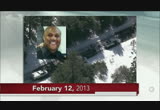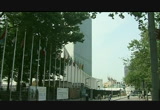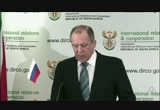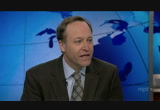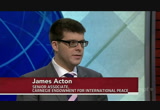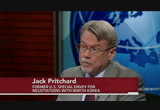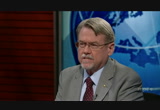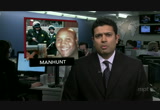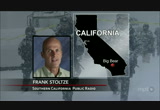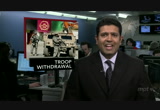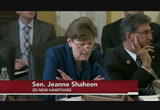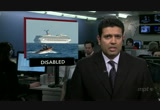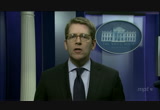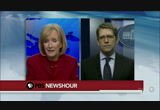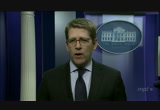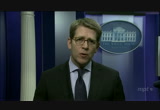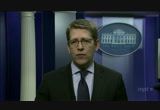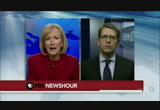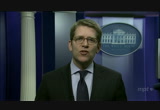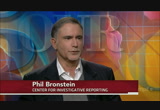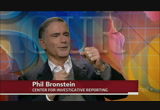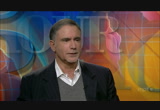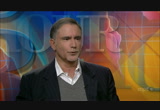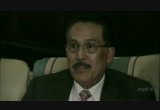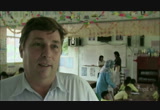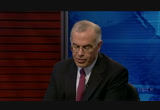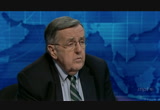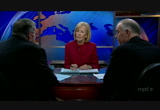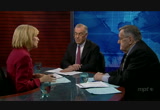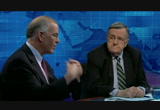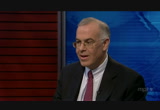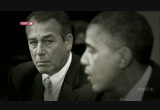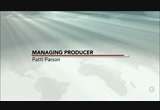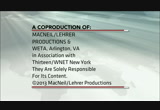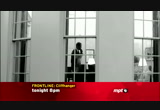tv PBS News Hour PBS February 12, 2013 6:00pm-7:00pm EST
6:00 pm
captioning sponsored by macneil/lehrer productions >> brown: north korea conducted its third high-level nuclear test, an action condemned by the united nations security council, president obama, and other world leaders. good evening. i'm jeffrey brown. >> woodruff: and i'm judy woodruff. on the newshour tonight, is pyongyang taking steps to build a bomb that could reach the united states? we examine the challenges the test poses for the west. >> brown: hari sreenivason gets the latest on the former los angeles police officer wanted for murder, after a gun battle in the big bear mountains this afternoon. >> woodruff: then, we get a preview of tonight's state of the union address from white house press secretary jay carney.
6:01 pm
>> brown: from malaysia, special correspondent steve sapienza reports on the social and environmental costs of harvesting palm oil, found in products ranging from cookies to cosmetics. >> one big reason the oil is so cheap to produce is the steady supply of migrant labor. it relies on 500,000 global workers to feed demand for the product and fuel malaysia's economic prosperity. >> woodruff: ray suarez talks with journalist phil bronstein about his profile of the navy seal credited with shooting osama bin laden. >> he talks about going in the room, rolling in the room as he puts it and being kind of shocked at how tall bin laden was and having to raise his gun up to shoot him. >> brown: we get closing thoughts about the president's speech tonight from mark shields and david brooks. that's all ahead on tonight's >> brown: and we get some closing thoughts about the president's speech tonight from mark shields and david brooks. >> brown: that's all ahead on tonight's newshour. >> major funding for the pbs newshour has been provided by:
6:02 pm
moving our economy for 160 years. bnsf, the engine that connects us. >> and by the bill and melinda gates foundation. dedicated to the idea that all people deserve the chance to live a healthy, productive life. >> and with the ongoing support of these institutions and foundations. and... >> this program was made possible by the corporation for public broadcasting. and by contributions to your pbs station from viewers like you. thank you.
6:03 pm
>> brown: another defiant act by north korea today. the nation carried out its third nuclear test, triggering new fears and a global outcry. the announcement blared forth on north korean state television. >> main purpose of this nuclear test is to show the resentment of our people and army of the united states' hostile actions that are no better than robbery. our nuclear test is a fair self-defensive action which does not contravene any international law. >> brown: the underground blast took place at a remote location in the north eastern part of the country. it was the communist regime's third nuclear test since 200 20062006. seismic readings in south korea suggested this device was smaller than those used earlier bull it packed more explosive punch. the test came just weeks after a u.n. security council vote imposing additional sanctions against north korea. that u.n. action followed north
6:04 pm
korea's launch of a satellite in december. the u.s. and others had warned that the rocket could also be used to carry nuclear weapons. today's nuclear test se the u.n. security council back into emergency meetings to discuss yet more sanctions. u.s. ambassador susan rice. >> the actions of north korea are a threat to regional peace and security, international peace and security. they are not acceptable. they will not be tolerated. and they will be met with north korea's increasing isolation and pressure under united states sanctions. >> brown: in washington a state department official confirmed that pong jiang had informed the u.s. of its intention to test a nuclear device but had given no date. other nations joined in a wave of condemnation including the russian foreign minister who was in south africa. >> from what we have heard today, pyongyang violated its commitment and deserves condemnation because it ignored the norms of international laws. >> brown: even china, the
6:05 pm
north's lone major ally voiced its, quote, staunch opposition. it urged north korea to return to its six party talks on its nuclear program stalled since 2008 but pyongyang has continued its nuclear work despite enter smat pressure. with today's test, the country's young leader kim jong-un directly challenged other leaders in neighboring nations including south korea, japan and china. back in washington, outgoing defense secretary leon panetta warned that those countries and the uses will have to contend with, quote, rogue states for some time. >> you just saw what north korea has done in these last few weeks. the missile test and now a nuclear test. they represent a serious threat to the united states of america. we've got to be prepared to deal with that. >> steven: north korea's own public statement insisted today's test was only a first response. it said it will be additional actions to come but gave no
6:06 pm
specifics. >> brown: and i'm joined by ambassador charles "jack" pritchard, former u.s. special envoy for north korea negotiatons under president george w. bush. and james acton, a senior associate in the nuclear policy program at the carnegie endowment for international peace. ambassador pritchard, i guess one obvious question is why now? >> it's a great question. and i usually start by saying why not now? let me explain that. north koreans have a very mature and serious nuclear weapon and a missile technology program. they're going to continue to do the research and development. when the time comes that they're ready to do a test, they're going to do that unless there is a political or a foreign policy reason for them not to do it. >> i mean there's been the questions about responding to sanctions. i mean even today people are wondering, is it tied to state of the union. is it sort of a direct, you know, push against the u.s.? >> i don't think so. i mean, in 2009 we heard this exact same thing. it was a condemnation of their april 2009 missile launch.
6:07 pm
the north koreans six weeks later conducted a second nuclear test in which they said it was because of the condemnation that occurred over their missile tests. you know, the response to that is that's nonsense. nobody conducts nuclear tests because they've been chastised over a missile test. more specifically, i would say if you're looking at a concurrence of time, it's not the state of the union. it's the two weeks prior to the inauguration of a new south korean president. >> brown: to another part of the world. we'll get back to that. let me ask james acton, the north korean official news agency referred to this as a miniaturized and lighter nuclear device with greater explosive force than previously. what does that mean? what can we tell about the actual device? >> good evening, jeff. most people believe that pyongyang's long-term goal is developing a ballistic missile along with a nuclear war head that can threaten the united
6:08 pm
states. in order to do that, you need a militarized physically smaller and lighter nuclear device. pyongyang is claiming that it's successfully done that. what i want to emphasize is we don't have any kind of independent confirmation of that at the moment. all we know from the seismic and the shaking of the earth after the test, this was an explosion. what we don't know is the size of the device. we don't know the material from which the devise was made. in fact, we don't even know definitively that this was larger than the previous two tests. it probably was. but it would take some time for the seismologists to estimate the yield accurately. >> brown: do we know, to say anymore about the bottom-line question here which is how much of a threat are they, to the region and ultimately to the larger... the rest of the world including the u.s.? >> well, i think the test today marks a quantitative change. it demonstrates that pyongyang
6:09 pm
is moving along its arc of developing nuclear weapons that can threaten the united states. it already has ballistic missiles that can threaten the region. if it can fit a nuclear war head on to those, then it can directly threaten some of its neighbors. it doesn't mark a fundamentally new departure. north korea has tested nuclear weapons and plenty of missiles. today marks an intensification of threat rather than a fundamental change in the nature of the threat. >> brown: you mentioned, ambassador pritchard, south korea. i also want to bring up... of course, the world condemned this right away. the most interesting perhaps was china which had explicitly called on north korea not to take this step. what does that tell you? >> well, take a look over the last six-and-a-half years since the first north korean nuclear debt nation in october of 2006. the chinese came out much stronger then. they had come out and unanimously joined the others at
6:10 pm
the security council condemning the north koreans on several occasions now. so they've developed a pattern of trying to warn off north korea from doing this but ultimately they are not going to unilaterally apply the type of pressure that would cause the north koreans to end its missile and nuclear programs. >> brown: the north koreans think they can go ahead... >> the north koreans understand the calculations that the chinese have made. they know exactly how far they can go. >> brown: do they... one of the questions, if i may, is we got new leadership in china, so the question becomes, will he take on what conventional wisdom says will be a status co- approach to north korea or is he going to be a little bit more angry, if you will, at the north koreans and how is that going to manifest itself? >> new leadership in china. new leadership in south korea. new leadership in japan. of course a new leader in north
6:11 pm
korea. >> also partly a new regime in the united states. you've got secretary kerry who will come at this in a slightly different point of view than his predecessor. we'll have to see how that plays out as well. >> what's the sort of detective work that happens now to figure out more about the things we don't know? how about particular test. >> right. as i mentioned previously, all we know is there's been a test. we have a very rough estimate of how big the bang was. what we don't know is whether the device was made from plutonium or highly enriched uranium. that sounds like a minor technical issue but it actually has hugely important policy consequences. north korea only has a small amount of plutonium. it actually would be very, very hard for it to produce more. so part of the reason why north korea wants to shift to uranium is because it would allow it to increase its arsenal relatively quickly. so if this turns out to be a highly enriched uranium test, then north korea has demonstrated its ability to
6:12 pm
expand its arsenal. so a lot of countries including the united states are going to be using radiation detectors to sniff the air to see if there's any leakage from the test. and work out from those radioactive materials what it can learn about the nature of the device that was detonated. >> brown: this is relatively easy to figure out once you get the detectors? >> i mean, you know, firstly, there's no guarantee there will be leakage of material. secondly, even if there is, there's no guarantee you're detected. you know, we didn't detect any material from the 2009 test. if you do detect it, then it's quite likely that you'll be able to distinguish between highly enriched uranium and plutonium. it's possible but not completely guaranteed by any means that you might be able to get some indication of the design of the device. but that will just educated guesswork and don't expect governments to be forth coming about that. >> let me ask you briefly as the u.n. goes back into session to look at sanctions, what more can
6:13 pm
be done at this point? >> very little on an international scale. in 2009 they came out with some very good sanctions, but it didn't really influence the north koreans' actions. i don't think there's any marginal addition to the sanctions that are in place. they're going to call on the north koreans to blink, if you will. very little from an international point of view. necessary but won't produce an outcome. >> brown: ambassador jack pritchard and james acton, thank you both very much. >> thank you. >> woodruff: we have more about today's nuclear test on our web site, including a dispatch on reaction in seoul, south korea, from our partner global post, plus links to previous newshour stories on north korea. and still to come on the newshour, white house spokesman jay carney; palm oil production in malaysia; osama bin laden's killer; plus, shields and brooks. but first, the other news of the day. here's hari sreenivasan. >> sreenivasan: the manhunt for a former los angeles policeman
6:14 pm
erupted into a firefight today. authorities said christopher dorner, wanted for three murders, has barricaded himself in a cabin in the big bear lake area, 80 miles east of the city. when police showed up, gunfire broke out. ey received information from the person reporting that the stolen vehicle was stolen by an individual that appeared to be very similar to christopher dorner. immediately we conducted a ground and air search for this vehicle. they were able to locate it at highway 38 and glass roads where the suspect in the vehicle fled into the forest. shortly thereafter, this individual barricaded himself in one of the cabins there and an exchange of gun fire occurred. during that exchange of gun fire, two officers were injured. >> sreenivasan: we get more from public radio. the reporter spoke to us a short while ago from the scene of the activity. frank, thanks for joining us. bring us up to speed. what happened today? >> well, it was in the early afternoon that a police got
6:15 pm
reports of a truck being commandeered in the big bear area. now, this suspect's truck had been found there a few days earlier burned out. this truck that he was driving apparently commandeered, and the police took after him and chased him into the woods into a cabin. they have him surrounded now. >> sreenivasan: what has he been doing for the past couple of days? how did he get access to this truck? >> well, he commandeered the truck from a couple of women. for the last few days police have been in a massive manhunt in southern california. hundreds and hundreds of officers looking for him. and there was a lot of question because his burned-out truck was found in the big bear area a few days ago. there was a huge snowstorm and people were wondering how could he survive out in this snowstorm? there have been reports that he
6:16 pm
was held up in one of the cabins not far from the command post where police were. then he shows up today on a mountain road in this commandeered truck that he has taken to this cabin, this remote cabin. >> sreenivasan: i've heard the audio file of a fire fight today. what happened? >> two police officers -- we're not sure what agency just yet -- wounded by the suspect according to police. we don't know their condition. but there was this fire fight that took place. swat officers from around southern california have been in the big bear area heavily armed. of course dorner himself a former police officer heavily armed himself according to police. >> sreenivasan: frank from southern california public radio thanks so much. >> thank you. sreenivasan: in iran the government said in iran, the government said today it is ready for a "comprehensive agreement" on
6:17 pm
allowing u.n. inspections of its nuclear sites. but it said the west must recognize its right to continue a nuclear program. the country's foreign minister said the u.s. and others have no right to criticize iran or north korea. . >> as long as those who issue warnings are themselves violators of international law they cannot expect to have a world free of nuclear weapons. we believe there should be a collective and international movement to destroy all weapons of mass destruction so that everyone will be able to use the latest science and technology for peaceful purposes. >> sreenivasan: iran has insisted its nuclear program is for power generation. the u.s. says tehran is bent on building nuclear weapons. president obama is set to bring home 34,000 u.s. troops from afghanistan by this time next year. white house and pentagon officials confirmed it today. the decision marks the next phase in the administration's plan to end the u.s. combat role in afghanistan by 2014. there are currently 66,000
6:18 pm
american troops in afghanistan, down from a peak of 100,000. a sharply divided senate armed services committee moved today to approve chuck hagel for defense secretary. the party line vote on the former senator was 14-11. his fellow republicans challenged hagel's past statements and votes on israel, iraq and iran's nuclear weapons program, while democrats argued hagel was more than qualified. >> i just believe that the testimony of senator hagel was not reassuring. i don't think he did come across clear and convincing, that he understood our policies toward iran. and the fact that you don't understand why and you can't clearly articulate the bad news for america for the iranians' nuclear capability sharply and to the point is unnerving and for the times in which we live. >> the concern that i have is the suggestion that this man who has served his country really since he was a young man and enlisted in vietnam is not qualified to be the secretary of defense. i think it's just not accurate
6:19 pm
and reflects certainly a different understanding of his background and his experience than i have. >> sreenivasan: democrats want a full senate vote later this week, but republicans could delay it. the federal government ran a budget surplus in january, after a temporary cut in payroll taxes expired. that word came as the congressional budget office forecast a deficit of $845 billion, the smallest since president obama took office. at the same time, the head of the c.b.o. warned congress that economic growth could be cut in half, if across-the-board spending cuts take effect next month. passengers on a disabled cruise ship camped on the decks today as the vessel was towed toward mobile, alabama. more than 4,200 passengers and crew are on the carnival cruise lines ship. but they've had no ventilation or working toilets since a weekend fire knocked out power. the ship is expected to arrive in mobile by thursday. on wall street, blue chips were up, while tech stocks gave a
6:20 pm
little ground. the dow jones industrial average gained 47 points to close at 14,018. the nasdaq fell five points to close at 3186. those are some of the day's major stories. now, back to judy. >> woodruff: what can the nation expect from president obama's state of the union speech tonight? i spoke with white house press secretary jay carney a short time ago. jay carney, thank you for joining us. let me begin by asking what does the president want to accomplish tonight? >> judy, tonight he wants to make clear to the american people that his number-one priority is what it has always been since he began running for the office of the presidency back in 2007. that is, the need to grow the economy and rebuild and strengthen the middle class because the middle class has always been the engine of our economic growth. when the middle class does well, when our economy grows from the middle out instead of the top down, america does better. that's really been the focus of
6:21 pm
his energies on domestic policy since, like i said, the time he began running for this office. it was the focus of so much what he did in his first term. it remains the focus because the recession that was in full bloom when he took office in january of 2009 cost this economy almost nine million jobs. and dug a heublg hole out of which we've been climbing ever since. we've achieved a lot. over six million private sector jobs. quarter after quarter of economic growth. there's more work to do. what you'll hear is a plan from the president to get that done. more jobs, more growth. >> woodruff: when it comes to the economy and the fiscal health of the federal government, we know that house speaker john boehner told reporters today that the president in his words doesn't have the guts to tackle the serious problem of the debt facing this country, that he's not willing to take on his own party when it comes to reducing or rather raising the eligibility age for medicare. >> i think it's unfortunate that
6:22 pm
the name-calling on the eve of the state of the union. i think it's interesting coming from the speaker of the house who in a series of negotiations with the president has walked away from compromise proposals that the president has put forward as recently as the end of last year. the president put forward a broad deficit reduction package that represented some very tough choices for democrats, in very tough pills to swallow for democrats. john boehner, on the other hand, never did put forward a proposal that had the support or that he could lead his party to support. that's unfortunate. but the president will, you know, make clear again tonight as he has ever since that those ideas that he put on the table with his... in his negotiations the speaker remain on the table. he's committed to getting this done in a bipartisan way. we need to balance or rather reduce our deficit a balanced way that doesn't put all the burden on seniors or middle class families trying to send their kids to college. but that reduces spending in a way that is fair and that asks
6:23 pm
the wealthiest to do their fair share. >> woodruff: but it's not just the house speaker and republicans. it's the bipartisan group called "fix the debt." they put out a statement this afternoon saying they are disappointed that the president isn't prepared to look at serious reforms of the so-called entitlements. again on raising... not being willing to raise the eligibility age for medicare, bringing that topic up again. why isn't the president prepared to do that? >> well, it's simply false that the president isn't prepared to do serious entitlement reform. in fact, he is. one of the things that he put on the table in his negotiations with speaker boehner late last year was a willingness to do so-called chain c.p.i., to adjust the cost of living adjustment to applies to a variety of programs including social security as part of a comprehensive deficit reduction deal that includes revenues. he put on the table a willingness to means test medicare premiums. again an idea that does not sit well with a lot of democrats but he believes is worth doing as part of a comprehensive balanced
6:24 pm
approach to deficit reduction. >> woodruff: let me ask you about gun control. that's another subject we know the president is going to bring up tonight. does he look to make... to reach some sort of compromise there? we know there are deep divisions in both political parties. over what to do about guns. and what does the white house hope to accomplish by bringing a number of either victims of gun violence to the state of the union tonight or their relatives, family members? >> i think the point that he's trying to make is that gun violence is a problem that faces all of us. it is a problem in this country that we need and can address together. it shouldn't be just an ideological debate between lobbies in washington. it should be a conversation out in the country because it affects everyone. and the comprehensive set of proposals that the president announced several weeks ago to reduce gun violence in america, proposals that include legislative action in congress as well as executive action, 23 executive actions from the
6:25 pm
administration, represents an effort to deal with gun violence in a common sense way. not a single proposal that the president has put forward would take a single firearm away from a single law-abiding american citizen. because he believes in second amendment rights but he believes we ought to take action, sensible action, to reduce gun violence in this country because, as we all saw in newtown, connecticut, the horror of what happened there, i think will stay with all of us forever. unfortunately as we've seen again and again it happens all too often in this country. >> woodruff: we know the president will be following up the state of the union by making a trip to north carolina. he's going to be going to atlanta and then to chicago later this week. we're reading today not just republicans but democrats privately are saying, we think... we worry the president is out there campaigning, still in campaign mode when he really ought to be sitting down with lawmakers here in washington to work out some of these tough
6:26 pm
issues. >> i certainly haven't heard a lot of democrats saying that. what i would say is that this president firmly believes that it is part of his obligation to those who voted for him and those who voted against him to go out into the country and explain what his vision is, explain what his agenda is and to rally support for the proposals that he's put forward. proposals that on issue after issue already enjoy a majority of the american people's support. it's simply not the case that we should just have these conversations among ourselves here in washington. the president believes that we need to go out into the country and have the conversation with the american people. i think we're selling him short if we assume they're not interested in conversations about how we reduce our deficit in a balanced way, how we tackle comprehensive immigration reform, how we meet the challenge of gun violence in america. these are conversations the american people desperately want to have with their leaders and the president is going out and having those conversations. it's also true when it comes to getting something done in washington. we have learned from hard
6:27 pm
experience that it is not just enough to sit around a table with congressional leaders and try to work out a negotiation. it is very helpful to go out and engage the american people to make sure their voices are heard and that their priorities are listened to here in washington. that's what the president is going to do. he's going to do both. he will continue to work with congress, continue to negotiate with congress and continue to meet with congress on issue after issue. but he's not going to leave the american people out of the equation. >> woodruff: we hear you. jay carney joining us from the white house. thank you. >> thank you, judy. i appreciate it. >> woodruff: online join the discussion around tonight's find a link to it on our home page. newshour political editor christina bellantoni will host a google-plus hangout. also there, you can watch the newshour's special coverage of the state of the union. >> brown: we turn now to the story of the man credited with killing osama bin laden, and the post-military challenges he's
6:28 pm
faced. ray suarez has more. >> tonight i can report to the american people and to the world that the united states has conducted an operation that killed osama bin laden. >> suarez: may 1, 2011. president obama announces to the world that a ten-year manhunt is over. the founder and face of al qaeda is dead. in a late night raid in pakistan, a group of u.s. navy seals, now well known as seal team 6, had stormed the walled compound where bin laden was quietly living and operating. now writing in esquire magazine phil bronstein of the center of investigative reporting has tracked down the man credited with taking the kill shot who has since retired from the navy. the man described only as the shooter tells of his struggle. no pension. difficulty finding employment. a lack of health insurance. and no security protection for his family or himself.
6:29 pm
the former seal hassles filed a disability claim with the department of veterans affairs for service-related injuries. average wait time for a decision exceeds nine months. we reached out to the pentagon for comment on the article. a spokesperson there said, quote, we're not responding to it in any way, either to confirm or deny anything. for more on this story i'm joined by the article's author phil bronstein. he's the executive chairman of the center for investigative reporting. welcome to the program. >> thank you. thanks for having me. >> suarez: this is a man whose identity is secret. you can tell from the department of defense they don't want to say anything about anything. how did you determine to your own satisfaction that the shooter is who he says he is. >> this is a relationship that started about a year and a quarter ago through some mutual friends. he was introduced to me as "the guy," as they like to call him. long before i ever met him, these were people who had, for
6:30 pm
instance, there was a party of seals who had been on that mission in washington a week after the mission. and i wasn't there but he was there along with other fellow seals who were on the bin laden mission. there was a lot of conversation acknowledging that he was the shooter. and other members of his red team squad were clearly in agreement with that. i did speak with three different people who were at that dinner. some military, some not. and then over time, i just, you know, i started finally started talking to him directly. it was a matter of sort of triangulation to the point where i felt like he definitely the most credible story about what happened. there were also little details in there, ray. i mean, he talks about going in the room, rolling in the room, as he puts it, and being kind of shocked at how tall bin laden was and having to raise his gun up to shoot him. it's not that those details really, you know, verified anything in particular except that they were details that were... i thought were somewhat
6:31 pm
telling. >> suarez: at the outset, he didn't know what his role would be in the operation so he's not the person who came in on that helicopter knowing he would be the person who would take out bin laden did he? >> he did not. they all had roles. his original role had been as a team leader. he was going to be the leader of the exterior team. that was the team of people that they drop outside of the compound initially to check the perimeter. they had an interpreter. they had had several snipers and they had this dog cairo. the idea was to keep local pakistanis from then vier ons away which they did. it wasn't that hard it turned out. he was originally on that team and actually managed to get himself transferred to the team that was going to be fast-roped on to the roof. he thought they needed more assaulters and that would give him an opportunity to perhaps be one of the people to shoot bin laden.
6:32 pm
as it turns out they got dropped off outside the compound, had to blow their way in and had to make their way up the stairs. >> suarez: you get a rare look inside that building as the operation is going down. but then the article pivots and you lament the fact that one of the most decorated combat veterans of our age who capped his career by terminating bin laden has no landing pad in civilian life. what is he up to now? >> there is something in the story. i mean obviously we don't get too specific about him engaging in some what we call discreet consulting. he's not broke. since the story came out yesterday people have talked about, you know, here's a guy who is broke because it's a more dramatic way to put it. he's not broke. but he does have bills. he has a family that he has to take care of. he has no pension because he left before the 20 years that it normally takes for you to retire.
6:33 pm
and he's, you know, the work that he's doing is not necessarily consistent or long lasting. >> suarez: not broke but insecure. in his own words. >> very insecure about a number of things. he's insecure about how he's going to feed his wife and kids. again don't mean that to sound like he's out on the sidewalk. as we all worry about our families. but also about safety and security. because one of the things that happened is when they got back from the mission they had a conversation. what if their name should come out? so the person who wrote the book "no easy day" under a pseudonym. his real name came out everywhere. within a day or two after that his picture was on a jihady website. what happened is the seal command told the shooter, you know, we can perhaps give you some kind of witness protection program. we don't have it yet. we haven't created it yet but we could. and someone perhaps half jokingly said to him, "and you
6:34 pm
could drive a beer truck in milwaukee." and he just felt like being put in a situation as though you were... didn't seem quite right to him. >> suarez: after 16 years of very intense combat and highly skilled work in our military, was this a case of willful neglect or just, as many soldiers experience, a bad hand-off from the department of defense to veterans affairs where you go after you're done with your active duty service? >> i think it's probably the latter, ray. i mean, i think it's hard to imagine anybody willfully condemning these guys not to have a good experience outside of the military. i think that... i work at the center for investigative reporting. we've done a lot of reporting on how for all vets coming out -- about 200,000 a year -- that the way for a disability claim to be adjudicated is average nine months and much more in some
6:35 pm
other areas. this guy has that issue. he's been waiting for his claim. he filed his claim in august, i think. still hasn't heard anything except please stand by. and there's no... there's really no facilitation. there's no organizing principle for someone of that kind of still, this particular skills that these guys have, the teamwork which is not necessarily that unusual but the level of activity that they do. they go out on missions. they're very focused and make decisions under the most difficult of circumstances. they've been doing this steadily now since 9/11. that is going out, finding people, high-value targets and killing them. so it's hard to imagine initially, okay, what do i do? one of his friends said i know how to hunt and track and i know how to kill. but the fact is they do have what we call executive skills, functioning skills. it's just a question of how you
6:36 pm
translate it. and the military doesn't really want them to leave because this is the group of people, special operators, that's going to be increasingly fighting our wars in our asymmetrical battlefield. so they have, you know, they have some programs perhaps, incentive for people who want to get out of other services but in this elite force unit, they just don't... them don't want them to leave. they want to save the slots. they want to keep the money for the next round of special operators who are coming in. i mean there were programs, some programs available to this fellow and he didn't even know about them. he had met for a year. he had been planning to get out. he met with people from the v.a. and elsewhere. and they just didn't know. we've since found out and i've talked to people at the v.a. who say the department of defense is very bad at communicating with soldiers while they're still in the military that this is available, this is available, this is available. >> suarez: the article is called "the shooter." you can read it online. phil bronstein wrote it. he's from the center for
6:37 pm
investigative reporting. thanks a lot. >> thank you, ray, for having me. >> woodruff: next, the very high cost of a very common product. a growing demand for palm oil-- used in cooking and many processed foods-- is driving one country to harvest it using migrant workers, many of them children. special correspondent steve sapienza traveled to malaysia, the world's second largest exporter of the oil. his story is part of a collaboration with the pulitzer center on crisis reporting. in malaysia's sabah province, migrant workers hustle to keep up with the rising global demand for palm oil. made from the fruit of oil palm tree, it is now found in more than half of all the products sold in u.s. supermarkets, from cookies to cosmetics. this labor-intensive work has changed little since the 1960s, when the government first pushed
6:38 pm
the expansion of palm oil production. today palm oil is malaysia's top crop, netting $25 billion a year, and driving the spread of palm oil plantations into the wilderness. the once sleepy port town of lahad datu is at the epicenter of malaysia's palm oil boom. the local population has doubled over the past 15 years, and real estate prices are soaring in what has been dubbed palm city. >> this is the catalyst for all kinds of business activities. >> reporter: nasrun datuk mansur is a state assemblyman and aide to sabah's chief minister. his government is expanding the port in lahad datu to include palm oil refineries, as well as fertilizer and biofuel plants. >> oil palm is the basis of our economy. it is readily available, and of course it is cheap-- cheap to produce oil palm, actually, compared to other oils. >> reporter: one big reason the oil is so cheap to produce is the steady supply of migrant
6:39 pm
labor. the palm oil sector relies on some 500,000 foreign workers to feed global demand for the product and fuel malaysia's economic prosperity. for decades, indonesian and filipino workers have migrated to sabah to harvest the palm oil fruit. leanory marcos arrived with his parents from indonesia when he was 12 years old. without documents to prove his residency, he could not enroll in school. so for the past five years, he has toiled on the plantations, earning about $7 a day. fatma tabbo was studying in indonesia until last year, but she stopped when her family ran out of money. >> i'm working here, cutting and clearing palm branches. but now i don't have money. >> reporter: how can you enter school if have no money? leanory and fatma's stories are similar to that of an estimated 50,000 migrant children without access to education in sabah. >> they have no papers. they cannot work legally.
6:40 pm
so in a way, they are invisible. >> reporter: as director of a social welfare charity in sabah, alison neri has seen what happens to migrant children who dont go to school. >> there's nowhere else for them to go, so the only thing for them is to help their parents, to supplement the income of the family. >> reporter: more of the world's working children are employed in agriculture than in any other sector, according to the international labor organization. in sabah, surveys show more than 50% of children without schooling end up working as child laborers. fatma's father, mappi tabbo, and his family of five children, ages five to 18, live and work on a secluded 60-acre plantation about one hour by car from lahad datu. since arriving, the family has faced a common problem: where to enroll their kids in school.
6:41 pm
ten years after moving from indonesia for a better-paying job, the 41-year-old still risks arrest and possible deportation if caught by police. for him, sending the kids to the malaysian school in town is not an option. >> a lot of migrants come in with the children, or they have newborn children there. they have no documents. they have no access to education-- no access even to the outside world. >> reporter: aegile fernandez grew up in a migrant family on a malaysian tea plantation. she is now program director of tenaganita, a malaysia-based non-profit group that assists migrant workers. >> if you look back even from our independence, even right after our independence, education was for all. there was no question of whether you had a document. so everyone could enter into any school that was nearest to you. >> reporter: according to the latest census, migrants, mostly from indonesia, now comprise nearly one third of the 3.2 million population in sabah province, and that, says fernandez, has made the
6:42 pm
government less willing to pay for universal education. >> this whole question that arose from locals that if you provide the education for migrant children, then the local children lose out. >> reporter: at a plantation owned by ppb oil palms, a special school run by a local nonprofit called humana has been trying to address the migrants' education needs. humana was founded over two decades ago by danish-native torben bening. >> we saw children going around in the plantations without any education. so in 1990, the first three school projects were started with 70 children. due to the demand for education, it has grown to 128 learning centers with more than 12,000 children. through our projects, i believe they have had a big effect in actually getting an awareness that the children existed, and also that they should go to school. >> reporter: the palm oil company paid for the construction of this schoolhouse, the books, and the uniforms.
6:43 pm
humana provides the teachers and study plans. ppb group manager frederick chok says the schools help the company attract and retain skilled labor. >> the reason why they are here is because a lot of them, they want to put their children in the humana school. >> reporter: today an estimated 12,000 migrant youth have access to the basic education offered at the nonprofit learning centers. but for tens of thousands of kids who work on other plantations, school remains out of reach and officials show no indication that reality will change. >> the government seems to agree that the children of these workers need education too, but they are not qualified to enter the local schools because they don't have the proper papers. >> reporter: meanwhile, fatma tabbo still holds on to hope that she can return to school-- and dreams that her siblings will get an education. >> i want my brother and sister
6:44 pm
to go to school, so they will be able to read and count. >> reporter: but for now, the tabbo kids-- and thousands of other migrant children-- will continue to toil in the shadows of the palm oil trees. >> brown: steve sapienza has reported other stories about the social and environmental costs of producing goods many of us take for granted. you'll find a link on our web site to the pulitzer center's page on "global goods, local costs." >> woodruff: and we come back to the state of the union address, and to the analysis of shields and brooks, syndicated columnist mark shields and "new york times" columnist david brooks. welcome,endalmen. so, david, what are you looking for from the president tonight? >> two things. first politically how aggressionive is it? the inaugural address was pretty aggressionive defense of government and his philosophy. it was much more aggressionive than anything he's done his first time.
6:45 pm
the thing is economics. what is the growth agenda? there are two big problems that i think he can address. one is the way political dysfunction is dragging down growth leading to policy uncertainty. nobody knows how to invest. nobody wants to grow. the second thing is, what exactly is a growth agenda? neither party has a very persuasive one. say you're a 55-year-old guy in erie, pennsylvania. your job has been displaced by technology. what's on offer for you? over the last three years we've seen this dramatic drop in male work force participation, a lot of people going on social security disability roles. what can obama offer you to get you back in the labor force. >> woodruff: we know he's going to talk about infrastructure, about education. what do you look for? i mean, does it matter how much he spells out the exact nature of what growth... >> i think what david said is important. but when there are eight priorities there's no real priority. all of these are important.
6:46 pm
but what i want to know he comes away with a sense of urgency tonight. obviously to the american voters it's the economy and jobs. we're looking, judy, at median household income has dropped $3469 over the last decade in this country. and median income is down. we've got a new normal of almost 8% unemployment. there really is a sense of, are there any weapons left in the ordinance to attack this? i think one thing we can be absolutely sure of is the president will talk long. i went through and the democrats have averaged one hour and 14 minutes, bill clinton. an hour and five minutes, barack obama. ronald reagan averaged 40 min tonight's his state of the union and richard nixon averaged 35 minutes. >> woodruff: that counts applause. >> that counts applause. i think he would endear himself
6:47 pm
to the nation if he just stood up and said i'm going to... >> that should be a voting issue all by itself. who do you vote for? >> woodruff: are you saying there's been a lack of urgency coming out of the white house? >> i think there's a lot of important issues that they've emphasized. gun control or immigration or training and research. but i mean what is it that comes out that the president says this is what defines my presidency? david is right. he was far more assertive, in his inaugural address than he was in his first term. i guess we expect that to continue. is there an olive branch offered? i mean, is there a sense or is there going to be the republicans have lost five of the last six elections in the popular vote. five of the last elections they lost senate seats. they lost the house races by 1.3 million even though they only lost eight seats. they're a party... and the republicans feel they get rolled on the fiscal cliff. so does the president try and
6:48 pm
pick them up and make them a partner in anyway? or does he try to steam role them? to me that's what i'm looking for snit. >> that's what i meant by him being aggressionive. mark talked about the flat incomes, the people out of the labor force. we're in this new budget reality. we're probably not going to get a budget deal to reduce deficits but obama can't do anything to increase deficits. i think we know he's going say we're not going to increase deficits. this won't cost the american people a dime. how do you do big programs without costing anything? doing that either suggests you're going to make serious trade-offs cut somewhere else to spend here or do small symbolic stuff. >> woodruff: the white house is already putting out some advanced text saying that these are things... some of the things he wants to do are not going to cost the taxpayers anything. both of you have mentioned the inaugural address. we hear from the white house that the president is not just talking to the members of congress in the chamber. he's talking to millions of
6:49 pm
americans who have everything at stake. >> you could say to some degree the audience is the 48% who did not vote for him. in the sense that what he says to them. but really the true sense tonight is the people who are listening are those who support, admire and identify with the president. that's the case with every state of the union. but he'll be talking to the... in that room as well. i mean, to the particularly to the house. i think that's where there's going to be a graveyard or a launching pad for a second term. that's where it will take place. >> i'd say it's his own administration. the state of the union address rarely move polls. if you look at the last say 10 or 15. you get a two-point bump up or down. nothing significantly. what you're defining for your administration is your set of priorities. what do you mention a lot? what do you believe out? what do you give a passing reference to? it's more of the agenda you're telling everybody on your own team this is what we really care about.
6:50 pm
this is how you adjudicate those disputes, what we really care about most nowed how much does it matter what the president says and how he says it? >> when the state of the union is telling. the president george w. bush state of the union in 2002 did matter. because it was... that was really the cusp of going to war in iran after the attack of 9/11. bill clinton's 1996 address when he said prematurely and erroneous the era of big government is over. but it indicated his whole strategy for his re-election campaign which quite frankly worked. it's very few, judy, that you can look back and say, boy, that was the defining moment galvanizing instance. >> agendas matter. the problem the president has had for the last two years how do you pass anything when you don't control the house? what agenda does he think can get through the house? setting the actual agenda is what matters. the speech a little less so. >> woodruff: well, we will be watching that speech. paying attention to every syllable.
6:51 pm
out of the president's mouth. we'll be coming up in a few hours with both of you. mark shields and david brooks, thank you. >> brown: finally tonight, a behind-the scenes look at the political showdown over spending cuts and tax increases. tonight's "frontline" breaks down the standoff in 2011 that led to the fiscal cliff and triggered the current battle over automatic spending cuts set to kick in next month. here's an excerpt from "cliffhanger," about the negotiations to get a so-called "grand bargain" between the president and two leading republicans, speaker john boehner and house majority leader eric cantor. >> boehner wanted to return to the grand bargain he and obama had negotiated before the election. >> i agreed to put $800 billion of revenue on the table if the president was willing to make real spending cuts and reform
6:52 pm
our entitlement programs so they're sustainable for the long term. >> boehner's at the white house. he says i'm giving you $800 billion in tax revenue. what do i get for it? the president says nothing. and what the president meant was you already had put that on the table before. i won the election. that's not a concession. you need to come further to me than that. that's the starting point. that's the ante. >> reporter: the president wanted much more from boehner this time around. >> there were spending cuts that we had agreed to in august for july... or july of 2011 that were taken off the table. weren't even allowed to be discussed. in december of 2012. it was ex-pass rating. >> it turns out the white house isn't where they were in 2011. they walked back from significant concessions that they were willing to make then. the attitude is i won the election. i don't have to go back to the negotiating position. that was on the table then. this is what's on the table now.
6:53 pm
>> i had heard over the course of at that point six weeks on a number of occasions, you have to remember i won. well, republicans maintained their majority in the u.s. house. you know, we won too. >> brown: that was an excerpt from cliff hanger >> brown: that was an excerpt from "cliff-hanger," airing on frontline tonight, on most pbs stations. >> woodruff: again, the major developments of the day. north korea conducted its third high-level nuclear test an action condemned by the united nations security council, president obama and other world leaders. a former los angeles policeman wanted for three murders barricaded himself in a mountain cabin after a running gun fight with police. the los angeles times reported that one officer was killed and another wounded. and president made ready for tonight's state of the union address. he planned to focus on job creation and to press congress to avoid across-the-board budget cuts.
6:54 pm
online we examine good and bad networking. hari sreenivasan explains. >> sreenivasan: how do you find a job if you're turned off by the prospect of asking others for help? on making sense, headhunter nick corcodilos offers strategies and some key advice: keep up your friendships. who won't be at the capitol tonight? the designated survivor. that is the cabinet secretary picked to stay home to ensure presidential succession in case of disaster. we look back at this tradition on the rundown. and former white house speech writers offer insider takes on crafting the state of the union address. all that and more is on our web site, newshour.pbs.org. jeff? >> brown: and that's the newshour for tonight. i'm jeffrey brown. >> woodurff: and i'm judy woodruff. we'll be back tonight at 9:00 p.m. eastern time with full coverage of president obama's state of the union address, both on air and online. immediately afterward, we'll carry the republican response by florida senator marco rubio. and mark and david will be back with more analysis. until then, we'll see you online and again here tomorrow evening. thank you, and good night.
6:55 pm
>> major funding for the pbs newshour has been provided by: >> bnsf railway. >> and by the alfred p. sloan foundation. supporting science, technology, and improved economic performance and financial literacy in the 21st century. >> and with the ongoing support of these institutions and foundations. and... >> this program was made possible by the corporation for public broadcasting. and by contributions to your pbs station from viewers like you. thank you. captioning sponsored by macneil/lehrer productions captioned by media access group at wgbh access.wgbh.org
6:59 pm
266 Views
IN COLLECTIONS
WMPT (PBS) Television Archive
Television Archive  Television Archive News Search Service
Television Archive News Search Service 
Uploaded by TV Archive on

 Live Music Archive
Live Music Archive Librivox Free Audio
Librivox Free Audio Metropolitan Museum
Metropolitan Museum Cleveland Museum of Art
Cleveland Museum of Art Internet Arcade
Internet Arcade Console Living Room
Console Living Room Books to Borrow
Books to Borrow Open Library
Open Library TV News
TV News Understanding 9/11
Understanding 9/11
